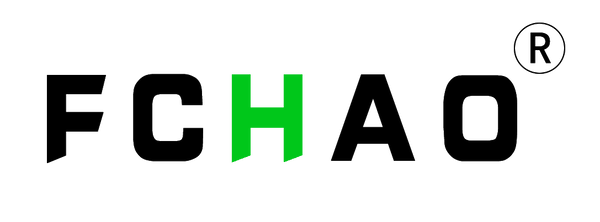Smart Power for Modern Homes: The Essential Guide to Solar Hybrid Inverters
A green energy revolution is transforming home power systems before our very eyes, driving us toward a more sustainable future. At the heart of this transformation are solar hybrid inverters - the cutting-edge technology redefining how we harness and manage household energy. This shift goes beyond environmental benefits; it represents a smarter, more efficient way to utilize solar power. In this comprehensive guide, we'll explore every aspect of solar hybrid inverters - from their fundamental workings to their game-changing advantages. Through detailed comparisons with conventional systems, we'll demonstrate how these innovative devices are accelerating our transition to sustainable living. Discover how solar hybrid inverters can completely redefine your home's energy ecosystem.
What Is a Solar Hybrid Inverter?
A solar hybrid inverter represents the pinnacle of energy management technology, combining the essential functions of both conventional and solar inverters into one intelligent system. This advanced unit revolutionizes home power distribution by dynamically coordinating electricity flow between three key sources: solar panels, the grid, and battery storage. Acting as the central hub of your energy ecosystem, it guarantees uninterrupted power supply regardless of external conditions - a critical feature for modern sustainable living. What truly distinguishes this technology is its instantaneous, automatic switching capability between energy sources, ensuring seamless operation without any disruption to your household activities.
How Does a Solar Hybrid Inverter Work?
The solar hybrid inverter operates as an intelligent energy command center, merging conventional inverter technology with advanced solar charging capabilities. This integrated system masterfully coordinates power flow between three sources: photovoltaic panels, the electrical grid, and battery banks. During peak sunlight hours, it performs dual functions - converting solar-generated DC power into usable AC electricity for household consumption, while simultaneously directing surplus energy to charge storage batteries. When solar input diminishes, the system automatically activates battery power, maintaining uninterrupted electricity supply through its self-regulating design. This sophisticated power orchestration delivers maximum energy efficiency while ensuring dependable operation around the clock.
- Solar Power Conversion: Converts DC electricity from solar panels into AC power for household use.
- Energy Storage: Stores excess solar energy in batteries for later use.
- Smart Switching: Automatically switches between solar, grid, and battery power to maintain a continuous supply.
- Remote Monitoring: Allows users to track performance and adjust settings via mobile apps or web platforms.

App Remote Control and Data Monitoring:

Key Features of Solar Hybrid Inverters
- Integrated Battery Management – Optimizes charging and discharging to extend battery life.
- Dual Power Source Utilization – Seamlessly transitions between solar and grid power.
- Backup Energy Storage – Provides power during outages or peak demand periods.
- High Energy Efficiency – Reduces reliance on grid electricity, lowering utility bills.
- Smart Control – Enables real-time monitoring and adjustments from anywhere.
Benefits of Solar Hybrid Inverters
✔ Lower Electricity Bills – Maximizes solar energy use, reducing grid dependence.
✔ Uninterrupted Power Supply – Battery backup ensures electricity during blackouts.
✔ Eco-Friendly – Minimizes carbon footprint by prioritizing renewable energy.
✔ Future-Ready – Compatible with evolving smart grid technologies.
Solar Hybrid Inverter vs. Traditional Inverter
When evaluating solar hybrid inverters against conventional inverters, several critical distinctions emerge that impact performance, efficiency, and sustainability.
| Feature | Solar Hybrid Inverter | Conventional Inverter |
|---|---|---|
| Power Sources | Dual input: Solar PV + Grid | Single input: Battery only |
| Energy Storage | Integrated battery compatibility | No storage capability |
| Power Management | Intelligent multi-source optimization | Basic battery power conversion |
| Cost Structure | Higher upfront cost, lower lifetime cost | Lower initial cost, higher OPEX |
| Operational Flexibility | Dynamic source switching capability | Fixed battery dependency |
| eco-friendliness | High (renewable energy prioritized) | Low (grid power dependent) |
Why Choose FCHAO Hybrid Inverters?
FCHAO inverters represent cutting-edge technology in solar energy conversion. Key advantages include:
- Advanced Energy Storage Architecture – Enhances efficiency and reliability.
- Seamless Grid Integration – Optimizes power usage in residential and commercial settings.
- Smart Monitoring – Provides real-time insights for better energy management.
FAQ
Do You Need a Battery with a Solar Hybrid Inverter?
While optional, a battery enhances energy independence by storing excess solar power for use during outages.
What Is the Lifespan of a Solar Hybrid Inverter?
Typically 10 years, depending on usage and maintenance.
Hybrid vs. On-Grid Solar Systems: Which Is Better?
- Hybrid Systems – Offer backup power and greater energy independence.
- On-Grid Systems – Simpler and more cost-effective upfront but lack storage.
Conclusion
Solar hybrid inverters represent a significant advancement in solar energy technology, efficiently combining the capabilities of traditional and solar inverters. The FCHAO inverter exemplifies this progress through its advanced energy conversion technology.
By integrating multiple functionalities, the FCHAO system provides a flexible solution that improves energy efficiency and supports sustainable energy use. Its notable technical characteristics include contributions to mainstream string inverter adoption and innovations in energy storage system design, which demonstrate its effectiveness in enhancing operational efficiency and reducing power expenses.
The FCHAO inverter's applications span residential, commercial, and utility-scale installations, offering potential benefits for various energy systems. Its implementation may support the transition toward more sustainable energy solutions. The technology provides operational benefits while potentially contributing to broader environmental protection efforts. The FCHAO system's technical features present opportunities for improved energy management and reduced environmental impact.


